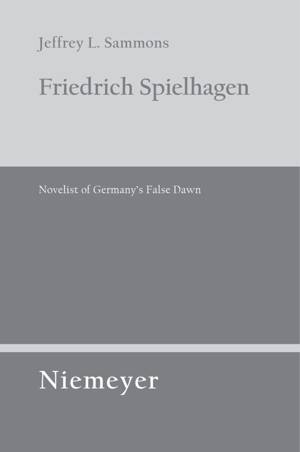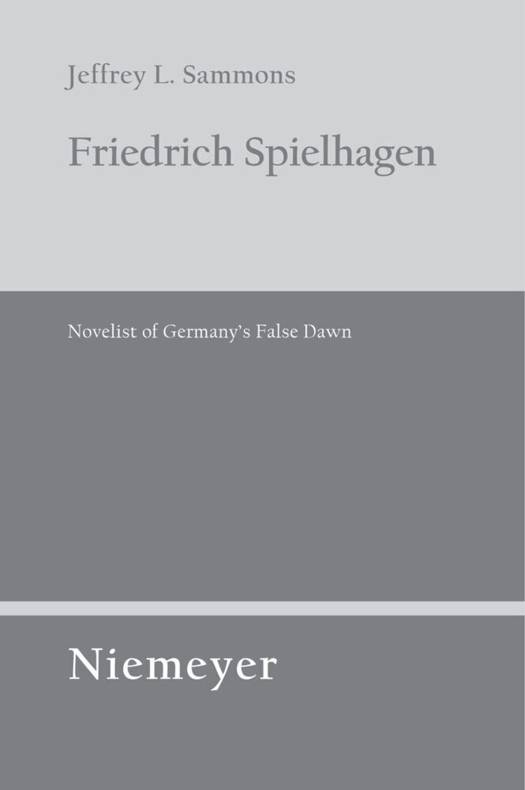
- Retrait gratuit dans votre magasin Club
- 7.000.000 titres dans notre catalogue
- Payer en toute sécurité
- Toujours un magasin près de chez vous
- Retrait gratuit dans votre magasin Club
- 7.000.0000 titres dans notre catalogue
- Payer en toute sécurité
- Toujours un magasin près de chez vous
Description
The once nationally and internationally prominent realist Friedrich Spielhagen (1829-1911) was decanonized and driven to the periphery of literary history in his own lifetime. Since then critical interest has ben sporadic and has often reflected the negative judgment passed on him by gatekeepers and tastemakers of his own time. Except for a very few specialists, most scholars have concentrated on his obsessively propagated >objectiveVormärz ideals of freedom and democracy, while being driven, somewhat against his will, in the direction of Social Democracy and the harsher realism of such French writers as Emile Zola. Special attention is given to a number of thematic centres, such as the aristocracy; class identity, liberalism, and Social Democracy; the military and the dueling ethos; Jews; America; women and love; and his agonized engagement with the contemporary French novel.
Spécifications
Parties prenantes
- Auteur(s) :
- Editeur:
Contenu
- Nombre de pages :
- 358
- Langue:
- Anglais
- Collection :
- Tome:
- n° 117
Caractéristiques
- EAN:
- 9783484321175
- Date de parution :
- 18-06-04
- Format:
- Livre broché
- Format numérique:
- Trade paperback (VS)
- Dimensions :
- 140 mm x 210 mm
- Poids :
- 444 g

Les avis
Nous publions uniquement les avis qui respectent les conditions requises. Consultez nos conditions pour les avis.






